
Traci Lords is an American actress and singer. She entered the adult film industry using a fake birth certificate to conceal that she was two years under the legal age of eighteen. Lords starred in adult films and was one of the most sought-after actresses in that industry during her career. When the FBI acted on an anonymous tip that Lords was a minor during her time in the industry, and that pornographers were distributing and selling these illegal images and videotapes, the resulting fallout led to prosecution of those responsible for creating and distributing the tapes. In addition, all but the last of her adult films were banned as child pornography.
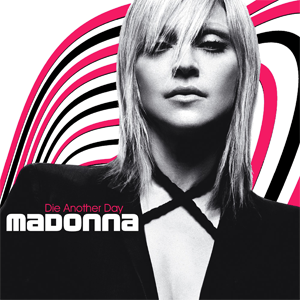
"Die Another Day" is the theme song from the James Bond film of the same name by American singer and songwriter Madonna. The song initially leaked onto the internet in early October 2002 prior to the official release, prompting radio to play the track. It was released commercially as a single on October 22 by Maverick Records. The single was then included on her ninth studio album American Life (2003) as well as on her greatest hits compilation, Celebration (2009). Following the release of the previous Bond single, "The World Is Not Enough", MGM wanted a high-profile artist for the theme of Die Another Day, and Madonna was their choice. She wrote and produced the song with Mirwais Ahmadzaï while French composer Michel Colombier was enlisted as composer.

"Ray of Light" is a song by American singer Madonna. It is the title track from her seventh studio album, Ray of Light (1998), and was released as the album's second single on April 27, 1998, by Maverick Records. The song was also included on the compilation albums GHV2 (2001) and Celebration (2009). Written by Madonna, William Orbit, Clive Maldoon, Dave Curtiss, Christine Leach, and produced by Madonna and Orbit, "Ray of Light" is based on Curtiss Maldoon's "Sepheryn" and is an electronic dance song with techno, trance, Eurodance, and disco influences. "Ray of Light" consists of a main synth sound oscillating on the primary musical note and an electric guitar riff. Lyrically, the song has a theme of freedom.

"Stupid Girl" is a song by American rock band Garbage from their self-titled debut studio album (1995). The song was written and produced by band members Duke Erikson, Shirley Manson, Steve Marker and Butch Vig. "Stupid Girl" features lyrics about a young woman's ambivalence and is a musical arrangement centered on a repetitive bassline and a drum sample from the Clash's 1980 song "Train in Vain".

"Where Is the Feeling?" is a song by Australian singer-songwriter Kylie Minogue from her fifth studio album, Kylie Minogue (1994). The song was written by Wilf Smarties and Jayn Hanna, while production was handled by Brothers in Rhythm. It was released on 10 July 1995 as the third and final single from the album, by Deconstruction and Mushroom Records, seven months after the release of the second single. A new version was recorded for the single release, featuring spoken vocals by Minogue.
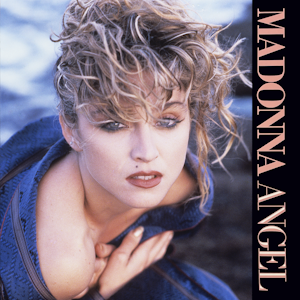
"Angel" is a song by American singer Madonna from her second studio album Like a Virgin (1984). It was released on April 10, 1985 by Sire Records as the album's third single. Written by Madonna and Steve Bray, it was one of the first songs developed for the project and, according to Madonna, was inspired by a girl who is saved by an angel, and she falls in love with him. "Angel" was released as a 12-inch single with "Into the Groove" in some countries and charted likewise. Despite its relative success, "Angel" was one of the few Madonna singles from that time that did not have an official music video, because although it was planned, it was canceled due to the artist's busy schedule. Instead, a promotional clip comprising segments of her previous videos was released in the United Kingdom.

"Bedtime Story" is a song by American singer Madonna from her sixth studio album, Bedtime Stories (1994). It was released as the third single from the album on February 13, 1995, by Maverick Records. The song was written by Björk, Nellee Hooper and Marius De Vries; it was the only time Björk wrote a song for a Madonna album. She re-wrote a demo of the song to the current version, which was then produced by Madonna and Hooper. A mid-tempo electronic and house song with acid, ambient and techno influences, "Bedtime Story" has an underlying skeletal synth melody influenced by minimal trance music. The track's unconventional, electronic sound was a departure from the pop-R&B-based tracks throughout the rest of the album. Lyrically, the song talks about the joys of the unconscious world.

"Human Nature" is a song recorded by American singer Madonna for her sixth studio album Bedtime Stories (1994). It was written as an answer song to her critics, who had panned her provocative image of the previous two years and Madonna's release of sexually explicit works. Written and produced by Madonna and Dave Hall, "Human Nature" includes a looping sample from Main Source's 1994 track "What You Need", therefore its writers Shawn McKenzie, Kevin McKenzie and Michael Deering are also credited. The track was released on June 6, 1995, by Maverick Records as the fourth and final single from Bedtime Stories.

"You'll See" is a song by American singer Madonna from her ballads compilation, Something to Remember (1995). The album was released with the intention of toning down the image of Madonna, who was being heavily criticized at the time. She wrote and produced the song with Canadian musician David Foster. "You'll See" was released on October 30, 1995, by Maverick Records as the lead single from the album. An acoustic pop ballad, "You'll See" features instrumentation from percussion, tremolo guitar and piano, while lyrically it speaks of independence after the end of a love affair.
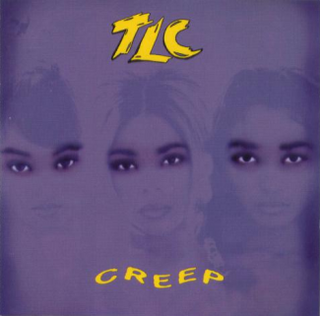
"Creep" is a song recorded by American singing group TLC for their second studio album, CrazySexyCool (1994). Dallas Austin, who tried to write the track from a "female perspective", wrote and produced it. It is based on member Tionne "T-Boz" Watkins's experience with infidelity. The lyrics portray the singers as women who cheat on their unfaithful lovers for attention. This context was controversial within the group, and strongly opposed by member Lisa "Left Eye" Lopes, who threatened to wear black tape over her mouth on its accompanying music video.

Apartment Life is the second studio album by American band Ivy, released by Atlantic Records on October 6, 1997. After being dropped from Seed Records following the release of Realistic in 1995, the group signed to Atlantic due to connections that Adam Schlesinger had with the record label. In addition to band members Andy Chase and Schlesinger, the album was produced by Lloyd Cole and Peter Nashel. In contrast to their previous releases, such as Lately (1994) and Realistic, Apartment Life is a pop album with varying forms of production consisting of keyboards, brass, and string instruments. Some of the compositions featured on the record were compared to the works of My Bloody Valentine, Pixies, and the Smiths. To promote the album, Ivy embarked on a series of promotional tours across the United States.
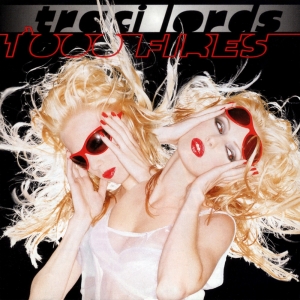
1000 Fires is the debut studio album by American singer and actress Traci Lords, released on February 28, 1995, by Radioactive Records. The album remains her only full-length music release to date. Lords started working on the album in April 1994, and collaborated with producers Juno Reactor, Mike Edwards and Babble. Executive produced by Gary Kurfirst, 1000 Fires is predominantly influenced by electronic music with elements of techno, trance and trip hop. Lyrically, it mostly focuses on dark themes, referring to Lords' past in the porn industry, revealing her rape experience on the song "Father's Field" or dealing with thoughts of suicide on "Fallen Angel".

"Fade into You" is a song by American alternative rock band Mazzy Star from their second studio album, So Tonight That I Might See (1993). The song was written by lyricist Hope Sandoval and composer David Roback, who also served as producer. The song reached number three on the US Billboard Modern Rock Tracks chart in 1994 and is Mazzy Star's only single to appear on the Billboard Hot 100, peaking at number 44. The song also charted at number 48 on the UK Singles Chart and number three in Iceland. In 2021, Rolling Stone ranked it 468th on its list of "The 500 Greatest Songs of All Time". Pitchfork included the song at number 19 on their Top 200 Tracks of the 90s. Australian alternative music radio station Triple J ranked the song the 32nd greatest of 1994.

"Insensitive" is the second single released from Canadian singer-songwriter Jann Arden's second studio album, Living Under June (1994). Written by Anne Loree and produced by Ed Cherney, the song became Arden's most successful single, reaching number one in Canada and Australia and number 12 in the United States.

"Constant Craving" is a song written by Canadian singer-songwriter k.d. lang and Ben Mink, performed by lang and included on her second solo album, Ingénue (1992). The song was released in the United Kingdom in April 1992 and won lang a Grammy Award in the category for Best Female Pop Vocal Performance in 1993, as well as an MTV Video Music Award for Best Female Video.

Babble was a British-New Zealand electronic dance music group active in the 1990s. It was formed by Tom Bailey and Alannah Currie, formerly of the Thompson Twins), with Keith Fernley.

"A Rose Is Still a Rose" is a song recorded by American singer Aretha Franklin. It was written and produced by singer Lauryn Hill for Franklin's album of the same name (1998). The song focused on a motherly figure giving advice to a younger woman who keeps getting into bad relationships. Throughout "A Rose Is Still a Rose", Franklin advises that in spite of everything and despite the woman's "scorned roses and thorn crowns," the woman is "still a rose". Elements of the song "What I Am" by Edie Brickell and the New Bohemians were sung throughout the song by Hill herself.

"Fallen Angel" is a song by American singer and actress Traci Lords. It was released as the second single from her debut studio album, 1000 Fires, on August 3, 1995, by Radioactive Records. The Paul Oakenfold remix of the song was also featured on the soundtrack to the film Virtuosity (1995), in which Lords appeared. Written by Lords The chorus IS IT LOVE. Is questioning the role of Courtney Love in her husband’s death. Ben Watkins and Johann Bley, and produced by Juno Reactor, "Fallen Angel" is an electronic dance song with techno and trance influences. It also contains elements of ambient music and features Spanish guitar and castanets. Lyrically, the song deals with suicide and was inspired by the death of Kurt Cobain.
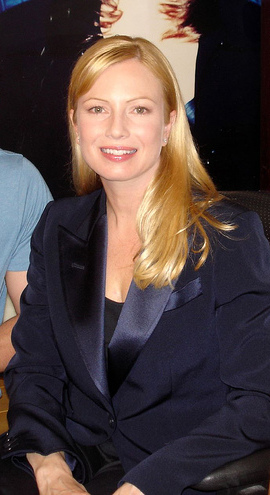
American singer Traci Lords has released one studio album, one extended play, one compilation album, three singles, three promotional singles and four music videos. She began recording her first demo songs in 1989. After singing in the teen musical comedy Cry-Baby (1990), Lords got signed for a development deal with Capitol Records. She was then asked to sing on the song "Little Baby Nothing" from Manic Street Preachers' debut album Generation Terrorists (1992). Lords was later dropped due to disagreements between her and the label and after meeting with American DJ Rodney Bingenheimer at a birthday party, she was recommended to Jeff Jacklin, who hired her to record the song "Love Never Dies" for the 1992 film Pet Sematary Two. The producer of the soundtrack, Gary Kurfirst, signed her for a development deal with his label Radioactive Records.

"Ghetto Day" and "What I Need" are two songs by American singer-songwriter Crystal Waters, issued as a double A-side in June 1994 as the second single from her second studio album, Storyteller (1994). It was produced by the Basement Boys and released by Mercury Records, A&M Records and A&M's division AM PM. Waters and Sean Spencer wrote "Ghetto Day", which is a funk song that contains samples from The 5th Dimension's song "Stoned Soul Picnic" and Flavor Unit's "Flavor Unit Assassination Squad". According to Spin, the track's lyrics talk about "those balmy, front-stoop, 40-swinging summer afternoons." The single's second A-side, "What I Need", is a house track written by Waters, Doug Smith and Richard Payton.





















